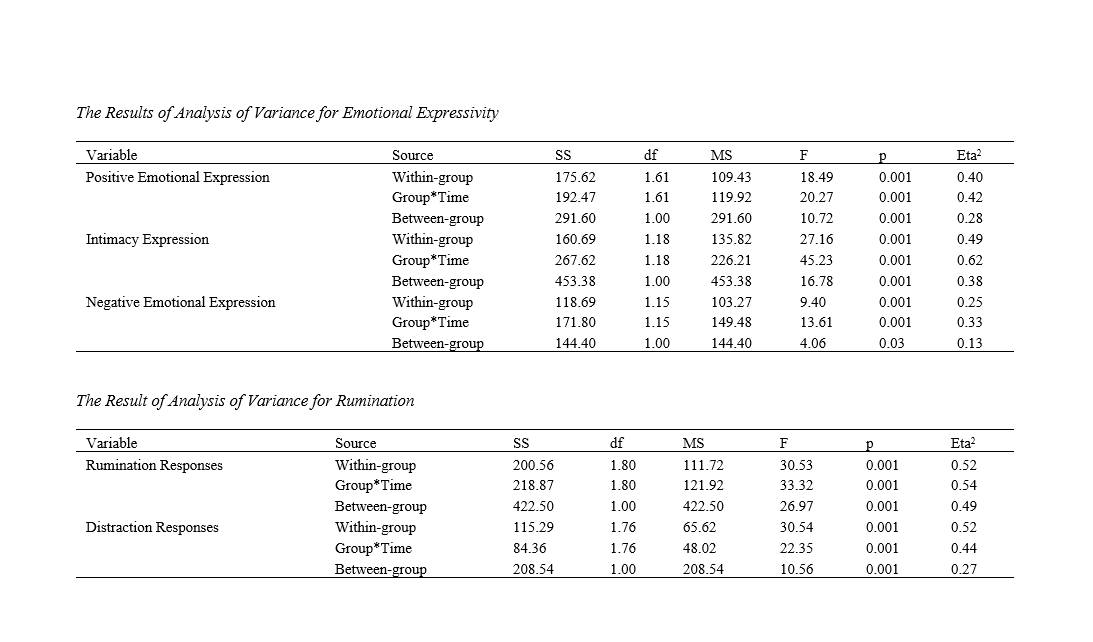The Effectiveness of Emotion Focused Group Therapy (EFT) on Rumination and Emotional Expression in Patients with Multiple Sclerosis
Keywords:
emotional expression, rumination, emotional focused therapy, multiple sclerosisAbstract
Aim: Multiple sclerosis is a progressive neurological disease. This disease has many negative and positive effects on the physical and mental health of patients. The aim of this research was to investigate the effectiveness of emotion focused group therapy (EFT) on emotional expression and rumination in patients with multiple sclerosis in Shiraz.
Method: The statistical population of this research includes all patients with M. S. In the city of Shiraz in 1401, their diagnosis was confirmed by a neurologist based on McDonald's 2017 criteria. After identifying patients with MS. 30 people who met the criteria for entering the research were selected purposefully and randomly and in equal numbers were placed in an experimental group and a control group. The experimental group underwent emotion focused group therapy sessions during 8 sessions of 90 minutes. During this period, the control group remained waiting without receiving any intervention. The main data of this research was obtained using Nolenhoeksma and Maro (1991) rumination questionnaires and King and Emmons (1962) emotional expressiveness questionnaires. Descriptive statistics and inferential statistics (variance analysis with repeated measurements) were used in data analysis.
Findings: Data analysis showed that after the implementation of the intervention, there was a significant difference between the control and experimental groups in both variables of emotional expression and rumination (P<0.05). A significant difference was observed in emotional expression components (positive emotion expression, sincerity expression and negative emotion expression) and rumination components (rumination responses and distracting responses) between patients with multiple sclerosis in the experimental and control groups (05 /0>P).
Conclusion: The use of emotion-oriented therapy is a suitable intervention to improve emotional expression and rumination in multiple sclerosis patients and can be used to improve psychological status and better cope with the disease.
Downloads

Downloads
Additional Files
Published
Submitted
Revised
Accepted
Issue
Section
License

This work is licensed under a Creative Commons Attribution-NonCommercial 4.0 International License.








